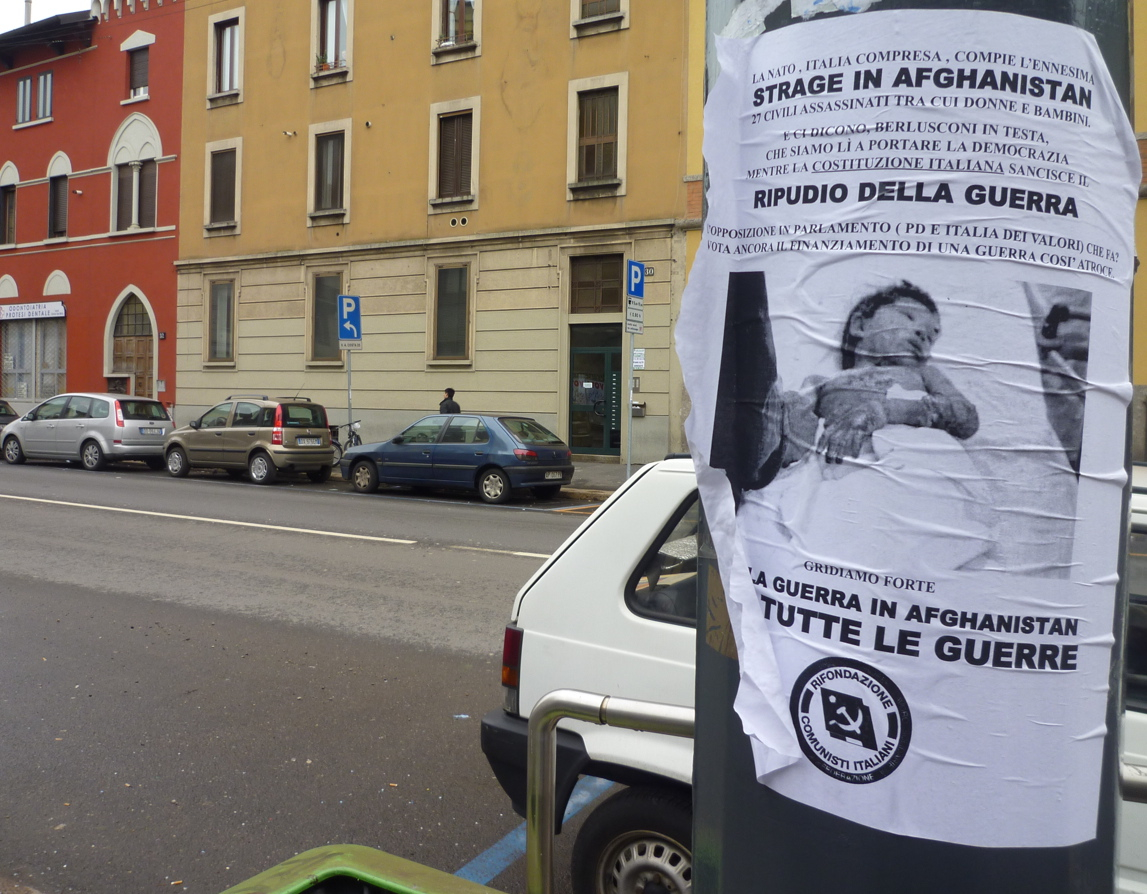It is no surprise that the assassination of Osama bin Laden has brought a wave of celebration in the United States. I, however, found my sentiments best expressed by 9/11 survivor Harry Waizer:
“If this means there is one less death in the future, then I’m glad for that,” said Mr. Waizer, who was in an elevator riding to work in the north tower when the plane struck the building. He made it down the stairs, but suffered third-degree burns.
“But I just can’t find it in me to be glad one more person is dead, even if it is Osama Bin Laden.”
The crowds I’ve seen in New York and Washington DC have been chanting and waving flags in scenes that could easily have been taken from a sporting event. I don’t mean to minimize the real feelings of anger that were justifiably raised by the barbarity of the 9/11 attacks. However, if Americans are going to treat this as a contest, it’s worth looking at the score.
Bin Laden, obviously a fanatic, lost his life. But the cost to the world was so much greater. A terrorist begins with the understanding that he is leading a much less powerful force than his foes. Part of the goal of terrorism is to increase the brutality of the targeted state, escalating the fear and the terror of the populace so that it will support greater violence.
At this, Bin Laden succeeded spectacularly. Since September 11, 2001, the United States invaded Afghanistan, where it has predictably become mired (as have so many invaders before it); its government created an elaborate (albeit ridiculous) lie in order to whip up sympathy to invade Iraq, where it also became entangled; its support for the Israeli occupation became even more fanatical and mindless; and, despite the obviously shallow mantra about “not being at war with Islam,” the US intensified its image in the Arab and Muslim worlds as the imperialist enemy, a condition which is about to bring serious consequences as the Arab Spring makes popular opinion a much more important factor in the region.
Add to this some 6,000 more Americans killed after 9/11. Not to mention those killed in subsequent violence in various foreign countries, numbering easily into six figures. Consider the economic cost to the US. Trillions of dollars have been spent on the war effort, even though that money might have enabled America to recover from the present economic crisis. Take stock of Iran’s increased influence throughout the Middle East, as a consequence of the Bush Administration’s invasions of Iraq and Afghanistan. Ponder America’s concomitant loss of influence and stature in the region. I could go on. The point is that if it were simply a matter of comparing losses, bin Laden appears to have come out ahead.
We can rest assured that the US is not close to paying the price bin Laden extracted for his life. The Middle East, as we can see modeled in Turkey and Egypt, is quickly moving away from cooperation with the US. America remains trapped in both Iraq and Afghanistan. Even our puppets, like Hamid Karzai, are defying Washington’s policy priorities. Lest we forget, in the end, though bin Laden was an important figurehead of al-Qaeda, there are many similar groups in the world who will survive his death. Though Al-Qaeda and similar groups have been losing popularity for a long time, especially now as Egypt, Tunisia and other countries have shown there are popular and better ways to gain their rights, terrorist groups will survive.
Bin Laden’s death does not signify an American victory. If a crowd is going to cheer about this like it’s a baseball game, what they’re really cheering is the ending of a long inning where our team kept getting hammered, giving up run after run. When the game finally ends, we will have taken too many losses to have any chance of winning.
That’s what we need to recognize now that we have killed bin Laden. Even Secretary of State Hillary Clinton has said we cannot realistically assess the score here, but are going to continue down the same forlorn path. Perhaps we can use this occasion to convince ourselves that it is time to turn away from this path of destruction. I can’t think of a better way to begin reclaiming US foreign policy.





